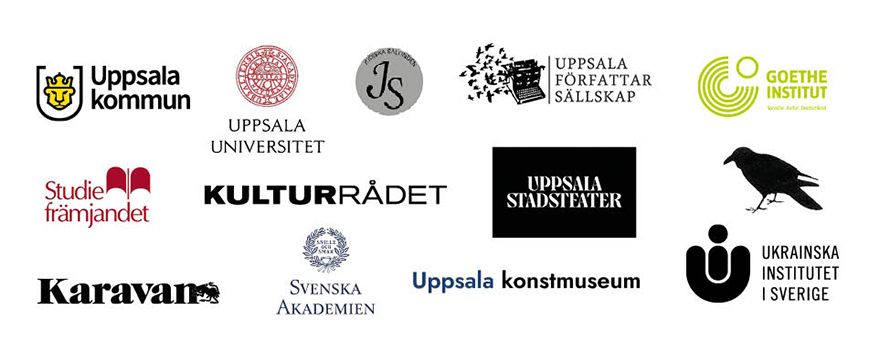Program 2024 English
A warm welcome to Uppsala International Literary Festival.
Introductory Words
We return again for the seventh year with the same ambition to broaden the Swedish literary horizon by presenting authors from cultures and languages that receive little attention in out country. This aim has become even more relevant to us in a world where struggles over narratives, over who gets to tell the stories that shape reality, has intensified.

Literature participates in giving shape to that story. By virtue of its singularity, literary texts may give us an insight into particular destinies. Therefore it is significant who or what characters are created, where they come from and from which perspective a story is told.
The question of who is represented and through which point of view a story is told shape our collective conscious. Which language is used, what images are created, and what stylistic choices are made also play into that formation. Having gotten used to certain forms of representation a society tend to take them for granted and understand them as given categories, norms and values.
Bookshops and libraries are dominated by British, American, French, Russian and Swedish literature. Notions such as European, modern, Christian and westerner have had an impact that cannot be compared to any other normative terms. Our book shelves reflect the current order or power.
The absence of stories told by those who are dominated increases the risk for demonization and alienation. For this reason we want to showcase authors from communities and regions that are the focus of international conflicts but whose cultural productions are being marginalized in Sweden.
We raise questions about the current state of the “Arabic novel”. Is this generic category relevant? If so, when? Or should we rather speak about the current state of Lebanese, Iraqi, Palestinian, Egyptian, Libyan, etc. literary production? Or is it individual authors, regardless of origin, and the choice of perspectives, themes and characters that contribute with alternative narratives to the ones we are used to hearing in the West?
This year’s festival will ask similar questions pertaining to the art of the novel and poetry in regard to literature coming from war torn countries around the Black Sea. Are there alternative stories and elements to form a narrative from the East?
Authors with roots in Lebanon, Libya, Iraq, Palestine, Israel will be presented and through a collaboration with the literary project “Black Sea Stories” we will also meet authors from Ukraine, Georgia, Armenia, Romania, and Bulgaria. Welcome to engaging conversations about alternatives to the dominating narratives and about possibilities to open up to a wider literary plurality!
We would like to express our deepest gratitude to our generous sponsors: Uppsala kommun, Kulturrådet and the Swedish Academy.
We would like to thank our collaborative partners Democracy and Higher Education (Uppsala University), the Goethe Institute of Armenia, Berlin International Literary Festival, Uppsala Stadsteater, Uppsala Art Museum, the Municipal Library in Uppsala, Uppsala författarsällskap, Litteraturens hus, Uppsala Akademibokhandeln, Studiefrämjandet I Uppsala, the journal Karavan, Jewish Salon in Gothenburg, the Ukranian Institute and Korpen Publisher.
The Festival team
Program 2024
Wednesday March 20 – Uppsala Municipal Library
17.30, Dreams, runaways and unamare lovers, A bunch of Arabic micro stories
Language: svenska
Duration: 30 minutes
Free entrance, no registration. Limited number of seats.
The micro story is a genre which seems to be flourishing today. Inside its restricted format there is room for entire worlds of stories.
The literary journal Karavan comes out with four issues per year and introduces authors from Africa, Asia and Latin America. Here Arabic micro short-short stories written by eminent authors from Arabic speaking countries are presented.
Listen to literary gems coming from the Nobel laureate Naguib Mahfouz, Zakariya Tamir from Syria and the Palestinian poet Somaya El Sousi read by the translators Jonathan Morén and Birgitta Wallin, who is also the editor of Karavan.
18.15, Human Destinies Sketched from Inside the Lebanese Civil War
Language: English, Arabic
Duration: 60 minutes
Free entrance, no registration. Limited number of seats.
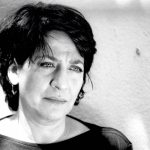
The author Hoda Barakat was one of the few who returned home after the Civil War broke out in Lebanon. Since then, she has pictured the human ruins of the war in her novels. She explores the divisions within the Lebanese society – the invisible borders that cut right through individuals and their lives.
Here she is in a conversation with Jenny Aschenbrenner, literary critic and cultural journalist.
READ MORE >>>
Thursday March 21 – Humanistic Theatre, Uppsala University
19.00, An Israeli Patriot’s Perspective on the Destiny of Palestinians
Language: English
Duration: 60 minutes
In collaboration with the research program Democracy and Higher Education, Uppsala University, we welcome Gideon Levy. He has been called the most hated man in Israel but calls himself a patriot who is more afraid of the Israeli Army than of Palestinians. In his books and columns in the newspaper Haaretz, he has incessantly criticized the Israeli government.
The conversation will be lead by artistic director Kholod Saghir and Mikael Olsson Al Safandi.
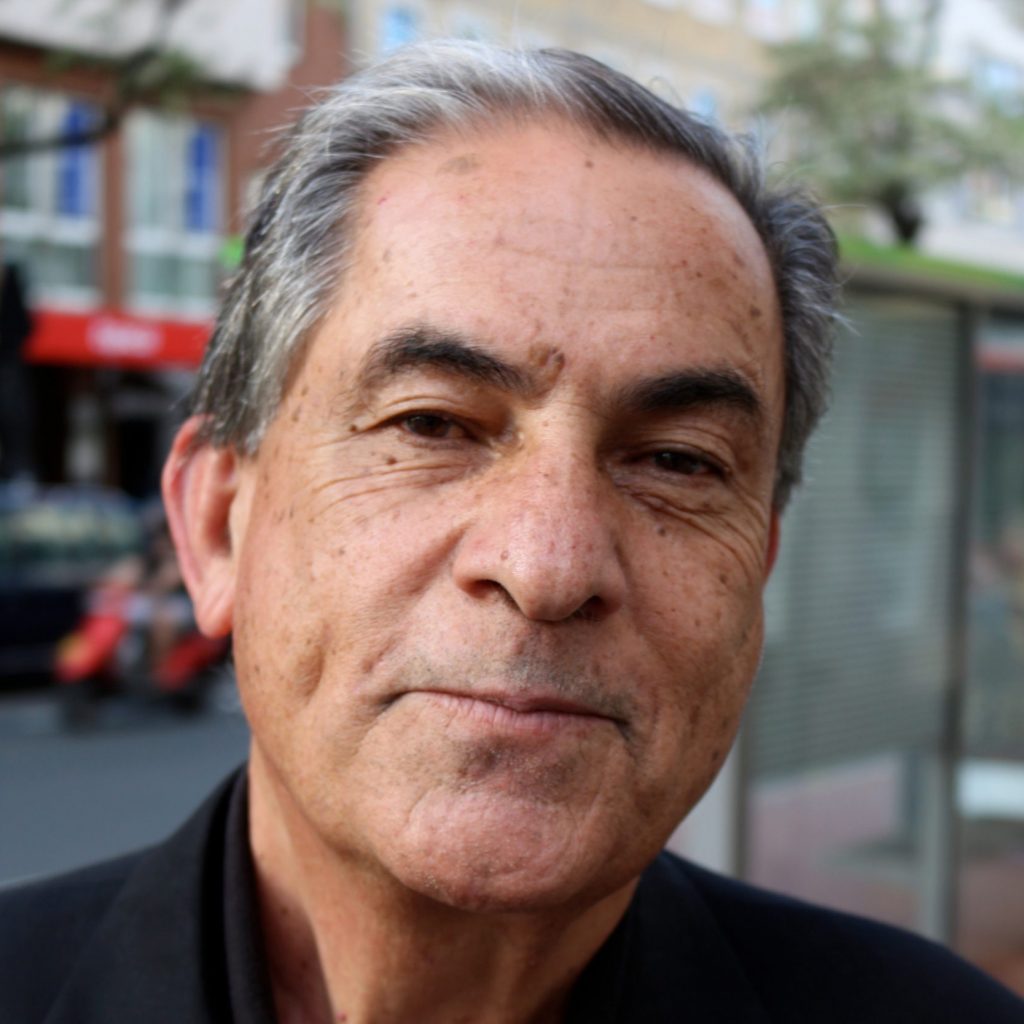

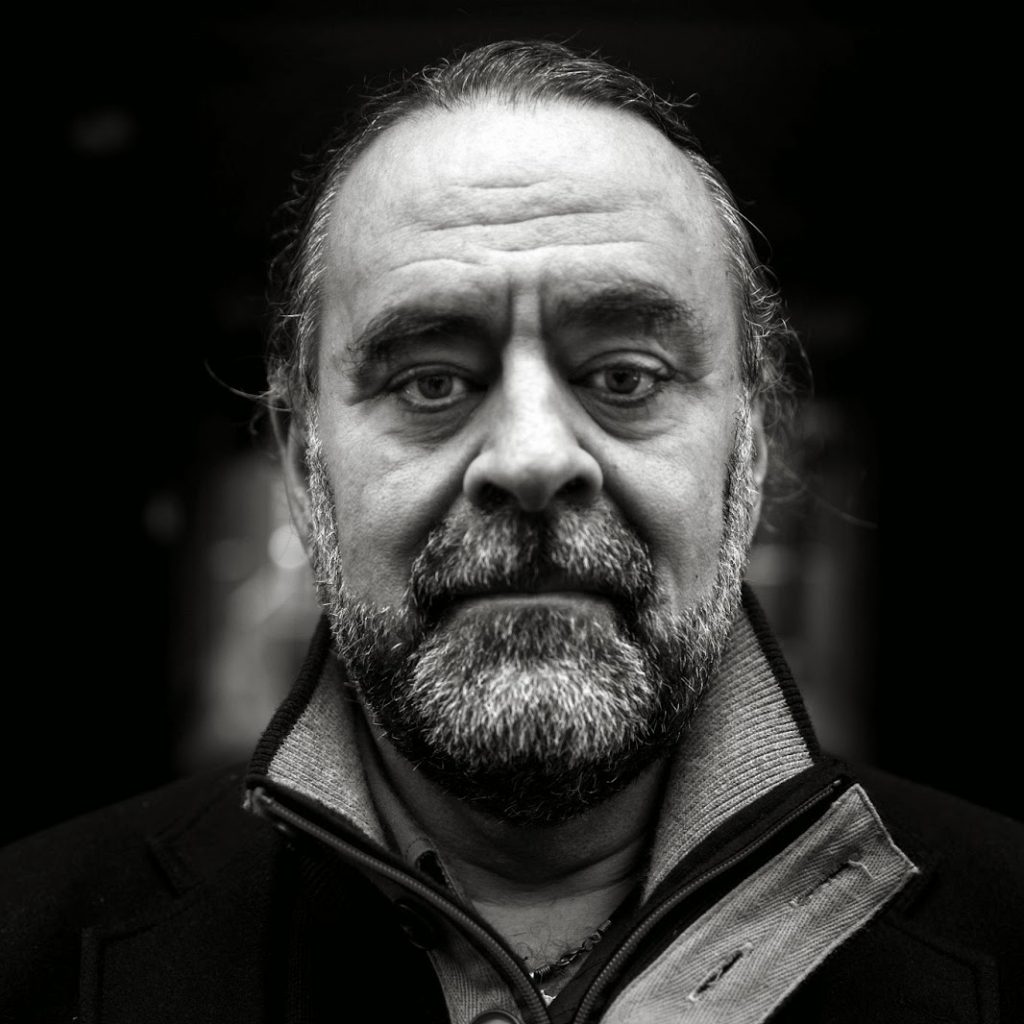
Registration is required, Click on the >>> link
or use the QR-code

READ MORE >>>
Friday March 22 mars – Uppsala Theatre
17:00, Lethal Translations in Libya
Language: English
Duration: 45 minutes

Libyan author and translator Mamon Zaidy has been given refuge in Uppsala. The reason is his “secular” writings and translations into Arabic of a number of books where human rights, liberty and justice are central themes. Due to this work, he has been threatened and persecuted in Libya.
Here he will dialogue with Magnus Dalerus, poet, director and literary critic.
READ MORE >>>
18.30, Iraq’s Split Identities, Loss and Displacement
Language: English, Arabic
Duration: 45 minutes

Iraqi journalist and writer Inaam Kachachi lives in exile. Her work explores how invasion and civil war have forced millions of people into exile and divided Iraqi identities. Here she will have a conversation with author and literary critic, Gabriella Håkansson.
READ MORE >>>
CANCELLED!!!
19.30, The Monstrous Consequences of Invasion
Language: English, Arabic
Duration: 45 minutes
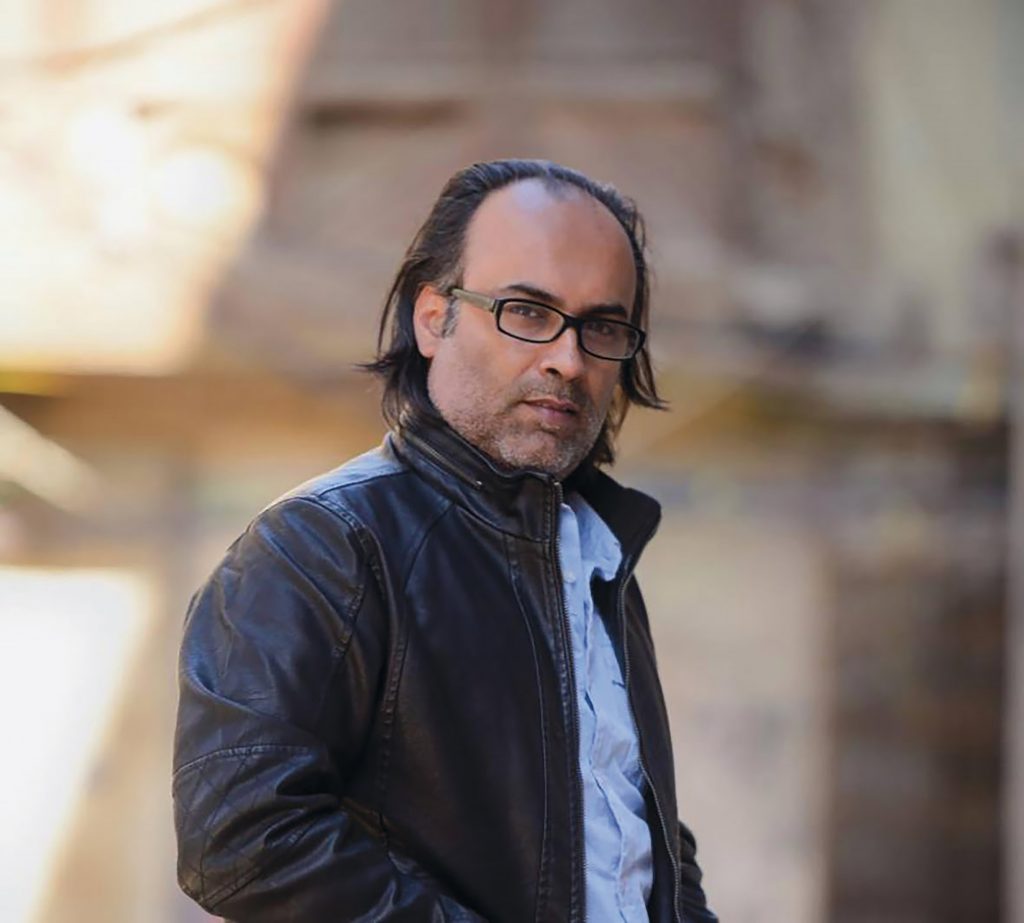
Can we understand the monumental madness that followed upon the invasion of Iraq by the U.S. coalition? Do Iraqis understand it themselves? This is the question that Ahmed Saadawi grapples with. He is a journalist, poet, novelist and author of the internationally acclaimed novel Frankenstein in Bagdad.
The conversation is led by Mikael Al Safandi Olsson, writer and journalist.
READ MORE >>>
Saturday March 23 – Uppsala Art Museum
14.00, Ukrainian Poetry, Art and Jewish Heritage
Language: Russian
Duration: 60 minutes
For the first time Ukrainian poet Boris Cheronsky’s poems are being presented in Swedish, translated by Dmtri Plax. He is one of the most important contemporary poets writing in Russian who after the invasion of Ukraine switched to writing in Ukrainian. Here we will read from his work Shockwave and hear him in dialogue with Anna Grinzweig Jacobsson, also a writer who has depicted Polish Jewish experience in several works.
The conversation will take place in the context of the exhibition “Border Memory”, signed Zhanna Kadyrova. Vadim Belenky will be interpreting.
Free entrance! Limited number of seats!
Book your free ticket via Tickster, click <here>
READ MORE >>>
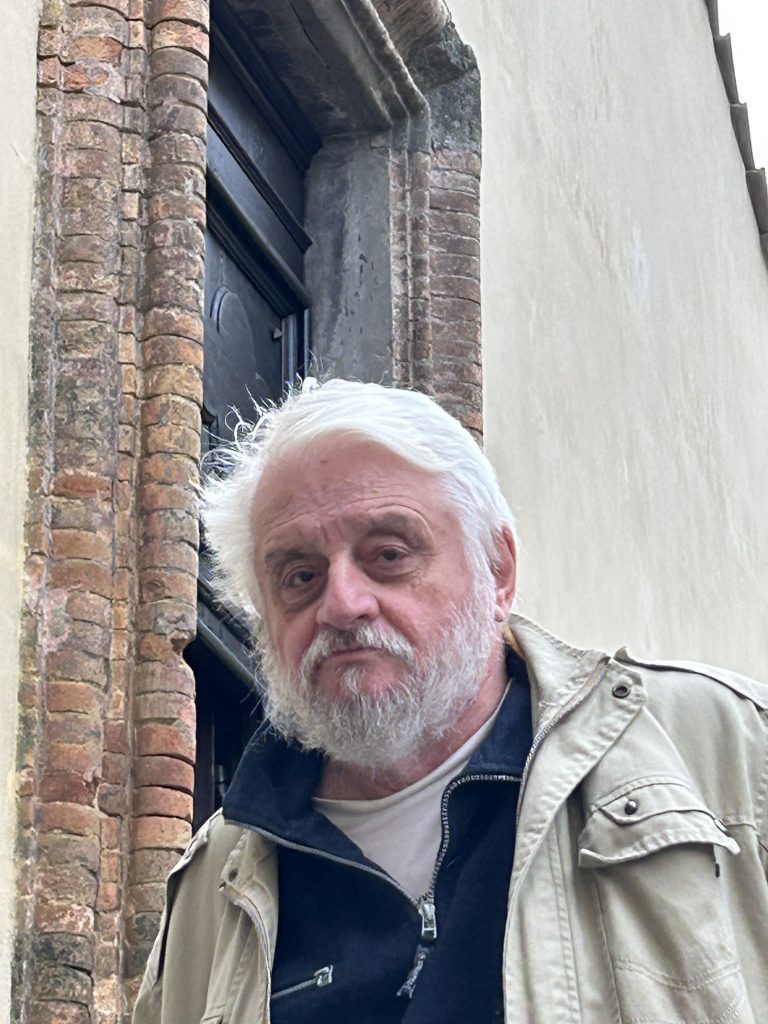

Saturday March 23 – Uppsala Theater
16.00, What if Palestinians Suddenly Disappeared?
Language: English
Duration: 45 minutes

What would happen if all Palestinians living in Israel would just disappear? How would Israel react? Such a scenario is the point of departure in the novel Sifr al-Ikhtifaa or The Book of Disappearance written by Ibtisam Azem, a Palestinian writer and journalist. She gives voice to Palestinians living in Israel struggling with memories and loss of memories.
Here she will have a conversation with Burcu Sahin, poet and cultural producer.
READ MORE >>>
17.15, Stories from a Scene of War and its Surroundings
Språk: engelska
Längd: 60 minuter
In these uncertain times, shadowed by the barbarism that has followed in the wake of the Russian invasion of Ukraine, countries around the Black Sea are facing challenges. The transcultural project “Black Sea Lit” seeks to open up a dialogue about those concerns and address the question about how Ukrainian, Georgian, Armenian, Romanian and Bulgarian narratives can be showcased. This initiative is supported by the German Goethe Institute and here we meet authors such as Ina Vulthanova (Bulgaria), Archil Kikodze (Georgia), Halyna Kruk (Ukraine), Bogdan Cosa (Romania) and Anush Kocharyan (Armenia).
READ MORE >>>
18.45, Readings from the works of the participating authors in the project Black Sea Lit.
Language: Swedish and original languages
Duration: 60 minutes
READ MORE >>>
20.15, Cultural Dominance and Subordination – West seen from the East and the South East
Language: English
Duration: 60 minutes
Here we encounter writers with a background in regions and languages that are underrepresented on the Swedish book market to talk about the reasons behind the inequity of the literary field and discuss why other perspectives matter. Listen to a conversation between Iraqi born Hassan Blasim, Palestinian Ibtisam Azem, Georgian Archil Kikodze and Lyudmila Khersonska, poet born in Moldavia and now living in Odessa, Ukraine.
The discussion will be moderated by Christina Kullberg, professor of French specializing in world literature.
READ MORE >>>
